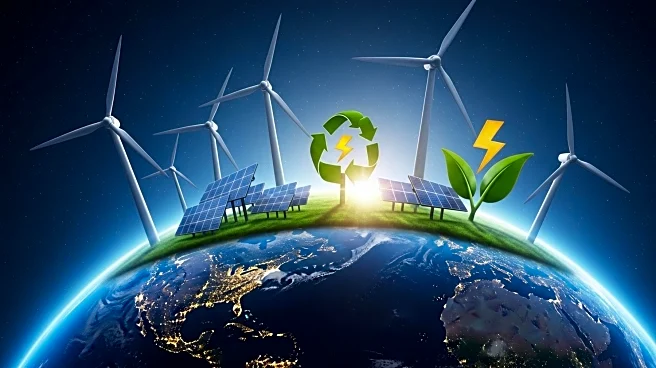What is the story about?
What's Happening?
In the first half of 2025, renewable energy sources, primarily solar and wind, generated more electricity globally than coal for the first time. According to a report by the energy think tank Ember, renewables supplied 5,072 terawatt-hours (TWh) of electricity, surpassing coal's 4,896 TWh. This shift marks a significant milestone in the global energy landscape, driven by a 31% year-over-year increase in solar power generation. The report highlights that while global electricity demand rose by 2.6%, solar energy alone met 83% of this increase. Despite this progress, the transition is not uniform across major power markets, with fossil fuel generation rising in the United States and the European Union due to increased demand and weaker renewable performance, respectively.
Why It's Important?
This development signifies a pivotal moment in the global transition towards cleaner energy sources. The surpassing of coal by renewables indicates a shift in energy production that could lead to a reduction in carbon emissions and a decrease in reliance on fossil fuels. This transition is crucial for addressing climate change and meeting international environmental goals. The growth of renewables also presents economic opportunities, as investments in solar and wind technologies continue to rise. However, the uneven progress across different regions highlights the challenges in achieving a global energy transition, with some areas still heavily reliant on fossil fuels.
What's Next?
The continued expansion of renewable energy is expected to further reduce the share of fossil fuels in global power generation. To sustain this momentum, increased investment in solar, wind, and energy storage technologies is necessary. Governments and industries are encouraged to enhance their support for clean energy initiatives to ensure reliable and affordable power supply. The report suggests that with falling technology costs, now is an opportune time to embrace the benefits of renewable energy. The focus will likely be on accelerating deployment and overcoming regional disparities in renewable energy adoption.
















